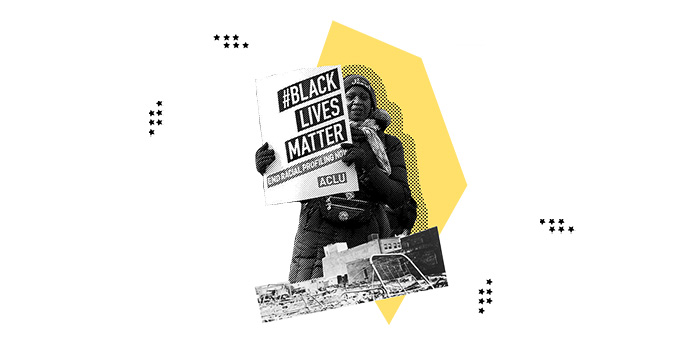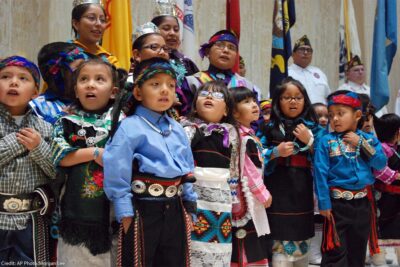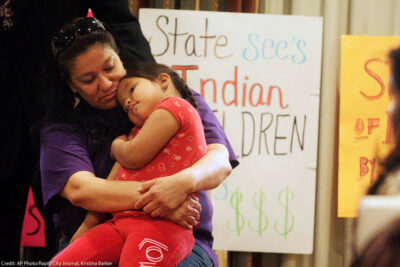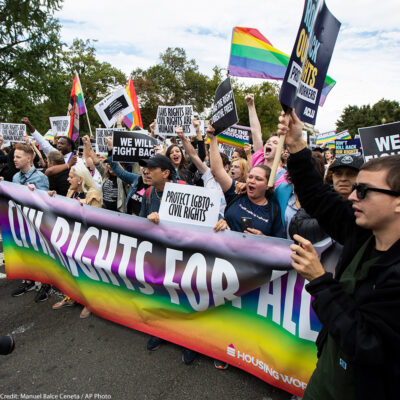American Indian Rights
The ACLU works in courts, legislatures, and communities to defend and preserve the individual rights and liberties that the Constitution and the laws of the United States guarantee everyone in this country.

The Latest
Explore More
What's at Stake
Indigenous peoples and their governments have suffered discrimination and injustice at the hands of the United States since the country’s founding, yet contemporary civil rights discussions all too often ignore their rights. Indigenous communities are among the most impoverished in the nation, and the stigma of past discrimination regularly rears its head in the spheres of public health, education, and juvenile justice.
The ACLU is committed to defending tribal sovereignty and the rights of Indigenous peoples to be free from discrimination and governmental abuse of power.
The ACLU has filed important class-action lawsuits challenging discrimination against Indigenous people in education, voting, and the child welfare system. In 1978, Congress enacted the Indian Child Welfare Act (ICWA), a federal law designed to protect Indigenous families from “abusive child welfare practices that resulted in the separation of large numbers of Indian children from their families and tribes through adoption or foster care placement.” In 2013 the ACLU used the ICWA to challenge pervasive discrimination and the lack of due process afforded to Indigenous families in emergency child custody proceedings.
On August 18, 2022, the American Civil Liberties Union, along with 12 ACLU state affiliates and represented by Cooley LLP, filed an amicus brief with the U.S. Supreme Court urging the court to uphold the constitutionality of the ICWA, which is at risk of being gutted by the court. We’re urging the court to uphold ICWA and the centuries-long legal precedent upholding tribal sovereignty — including tribes’ right and ability to preserve their unique cultural identities, raise their own children and govern themselves.
Indigenous peoples and their governments have suffered discrimination and injustice at the hands of the United States since the country’s founding, yet contemporary civil rights discussions all too often ignore their rights. Indigenous communities are among the most impoverished in the nation, and the stigma of past discrimination regularly rears its head in the spheres of public health, education, and juvenile justice.
The ACLU is committed to defending tribal sovereignty and the rights of Indigenous peoples to be free from discrimination and governmental abuse of power.
The ACLU has filed important class-action lawsuits challenging discrimination against Indigenous people in education, voting, and the child welfare system. In 1978, Congress enacted the Indian Child Welfare Act (ICWA), a federal law designed to protect Indigenous families from “abusive child welfare practices that resulted in the separation of large numbers of Indian children from their families and tribes through adoption or foster care placement.” In 2013 the ACLU used the ICWA to challenge pervasive discrimination and the lack of due process afforded to Indigenous families in emergency child custody proceedings.
On August 18, 2022, the American Civil Liberties Union, along with 12 ACLU state affiliates and represented by Cooley LLP, filed an amicus brief with the U.S. Supreme Court urging the court to uphold the constitutionality of the ICWA, which is at risk of being gutted by the court. We’re urging the court to uphold ICWA and the centuries-long legal precedent upholding tribal sovereignty — including tribes’ right and ability to preserve their unique cultural identities, raise their own children and govern themselves.




